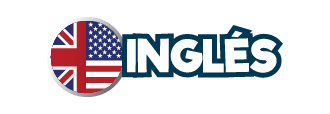English Course

A world of opportunities
If you have managed to reach this page, we are sure that you do not need to be convinced to learn English.
Knowing English opens up opportunities – most of the world's top universities are in English-speaking countries. To understand English, you can learn more through the media (movies, radio, etc.), books, and the internet. Finally, having English language skills gives you a competitive advantage and broader employment prospects.
Make your registration

A world of opportunities
If you have managed to reach this page, we are sure that you do not need to be convinced to learn English.
Knowing English opens up opportunities – most of the world's top universities are in English-speaking countries. To understand English, you can learn more through the media (movies, radio, etc.), books, and the internet. Finally, having English language skills gives you a competitive advantage and broader employment prospects.
Make your registration

Custom Lessons
Small classes mean more personal attention for each student. You will improve quickly because you will have many opportunities to communicate with your classmates and teachers.

Real Communication
You will be talking as much as possible and learning to communicate in different types of situations.

Quality seal
Our students can choose a variety of programs according to length, intensity, interest level and specific needs.
Do you speak English?
We invite you to do this simple English Test to define your Language Proficiency.

English
With a history of some 1,500 years, English emerged as a commercial language in the 5th century, spoken by the Germanic peoples who occupied what is now known as England. The language is called English – which means “the language of the Angles”.

Miscellaneous
Middle English developed between the 21st and 16th centuries, with the beginning of the Battle of Hastings in 1066, when King William defeated the Anglo-Saxon army and imposed his laws, his system of government and his French language. In this way, new words were incorporated into the English language!

The evolution
Old English – the first form of the language, appears between the 5th and 21st centuries. With the introduction of Christianity, the first influence of Latin and Greek occurred. Later, Scandinavian invaders who spoke Old Norse also influenced English.

Borders
Modern English – the modern form of language, from the 16th century to the present day. It is known for the works of William Shakespeare since 1550, when Great Britain became a Colonial Empire, extending to all continents, mainly the United States, Canada, Australia and some colonies in Africa.
How it all began
How it all began

English
With a history of some 1,500 years, English emerged as a commercial language in the 5th century, spoken by the Germanic peoples who occupied what is now known as England. The language is called English – which means “the language of the Angles”.

The evolution
Old English – the first form of the language, appears between the 5th and 21st centuries. With the introduction of Christianity, the first influence of Latin and Greek occurred. Later, Scandinavian invaders who spoke Old Norse also influenced English.

Miscellaneous
Middle English developed between the 21st and 16th centuries, with the beginning of the Battle of Hastings in 1066, when King William defeated the Anglo-Saxon army and imposed his laws, his system of government and his French language. In this way, new words were incorporated into the English language!

Borders
Modern English – the modern form of language, from the 16th century to the present day. It is known for the works of William Shakespeare since 1550, when Great Britain became a Colonial Empire, extending to all continents, mainly the United States, Canada, Australia and some colonies in Africa.
INTERNATIONAL CERTIFICATES OF LANGUAGE SUFFICIENCY
Foreign language proficiency tests are one of the requirements to enroll in undergraduate courses abroad or to compete for scholarships. Countries generally follow a common table of language proficiency levels. The scale is divided into six levels, ranging from A1, the most basic, to C2, expert. In general, the requirement to study abroad is B2 (equivalent to an advanced intermediate) or the levels above this, which are C1 (fluent) and C2 (native).
CAMBRIDGE Tests
TOEFL
IELTS






